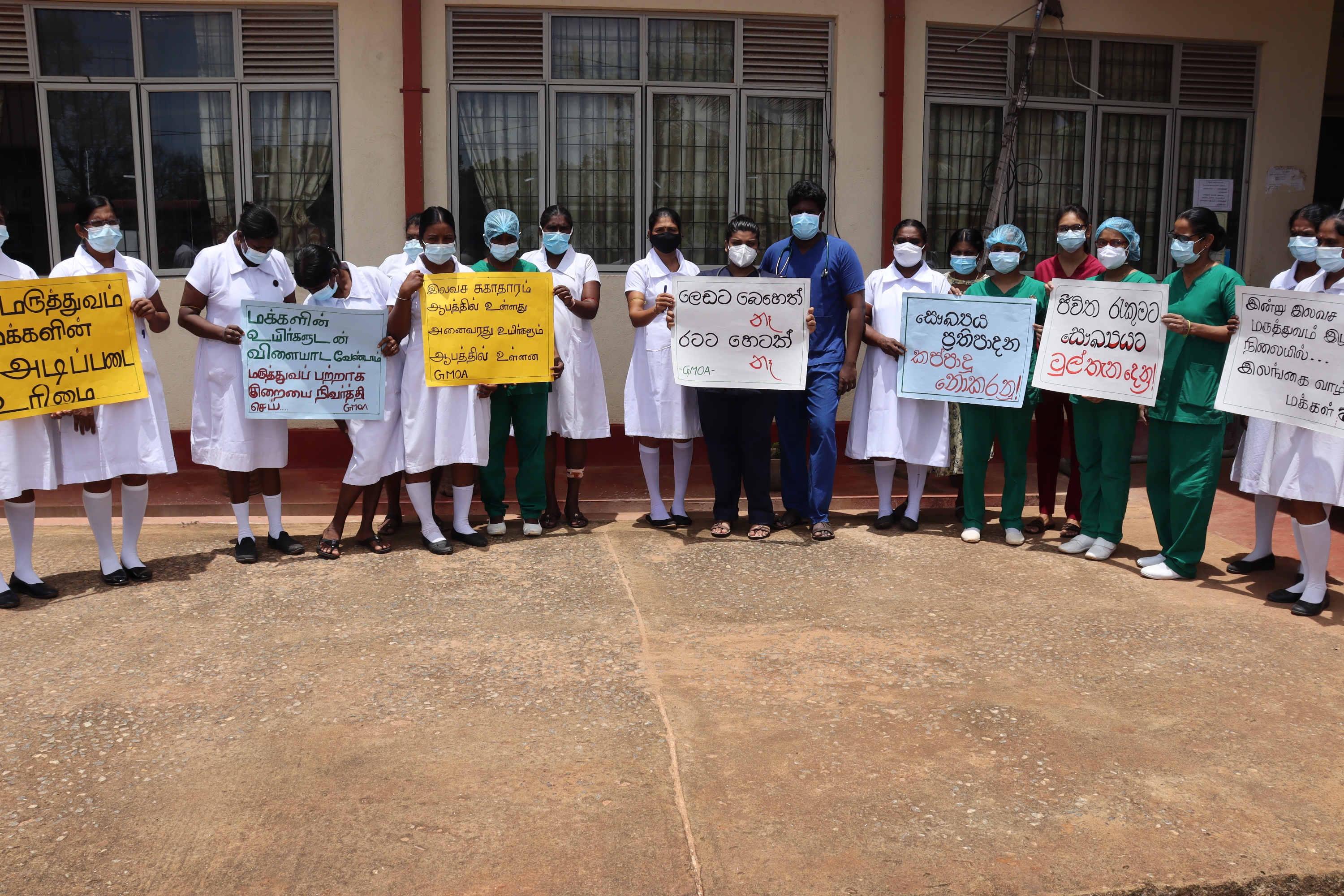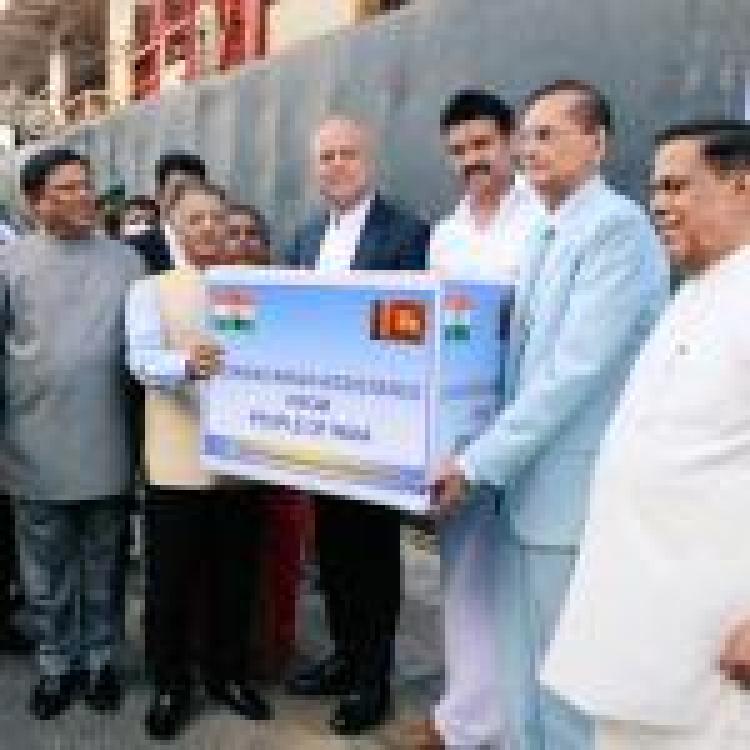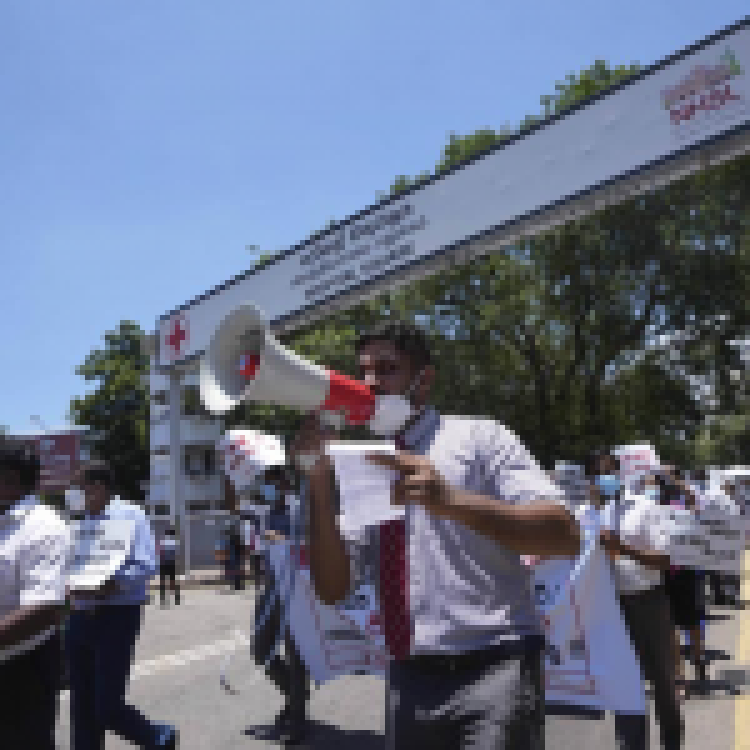Healthcare workers in Mankulam protesting last month.
The economic crisis in Sri Lanka has produced a medicine shortage that doctors say could result in deaths, as hospitals are unable to perform life-saving procedures.
The healthcare system sits on the brink of collapse as Sri Lanka confronts an unprecedented economic crisis. As 80% of medical supplies in the country are imported and foreign currency reserves are depleted, essential medications are in desperately short supply.
“It is very bad for cancer patients," said Dr Roshan Amaratunga. "Sometimes, in the morning we plan for some surgeries (but) we may not be able to do on that particular day … as [supplies] are not there …] If the situation does not improve quickly, several patients will be facing a virtual death sentence.”
According to one Sri Lankan government official, Saman Rathnayake, nearly 180 items are low in supply, such as injections for dialysis patients and medicine for cancer patients or those who have undergone transplants.
While India, Japan, and other multilateral donors have committed to helping procure medical supplies, the items are not expected to arrive for up to another four months. As such, Sri Lanka is requesting the support of private donors, domestically and from abroad, to lend their support.
Last week, India shipped 25 tonnes of medical supplies alongside additional humanitarian aid.
The total aid amounts to $5.6 million, and includes rice, milk powder, and other essential medicines. The Indian embassy noted in a statement that the goods are to be distributed among vulnerable families across the country.
“At no time has India assisted any other country to this extent … This is something for which we are deeply grateful,” said Sri Lanka’s Foreign Minister Gamini Peiris.
Read more from Al Jazeera here.



